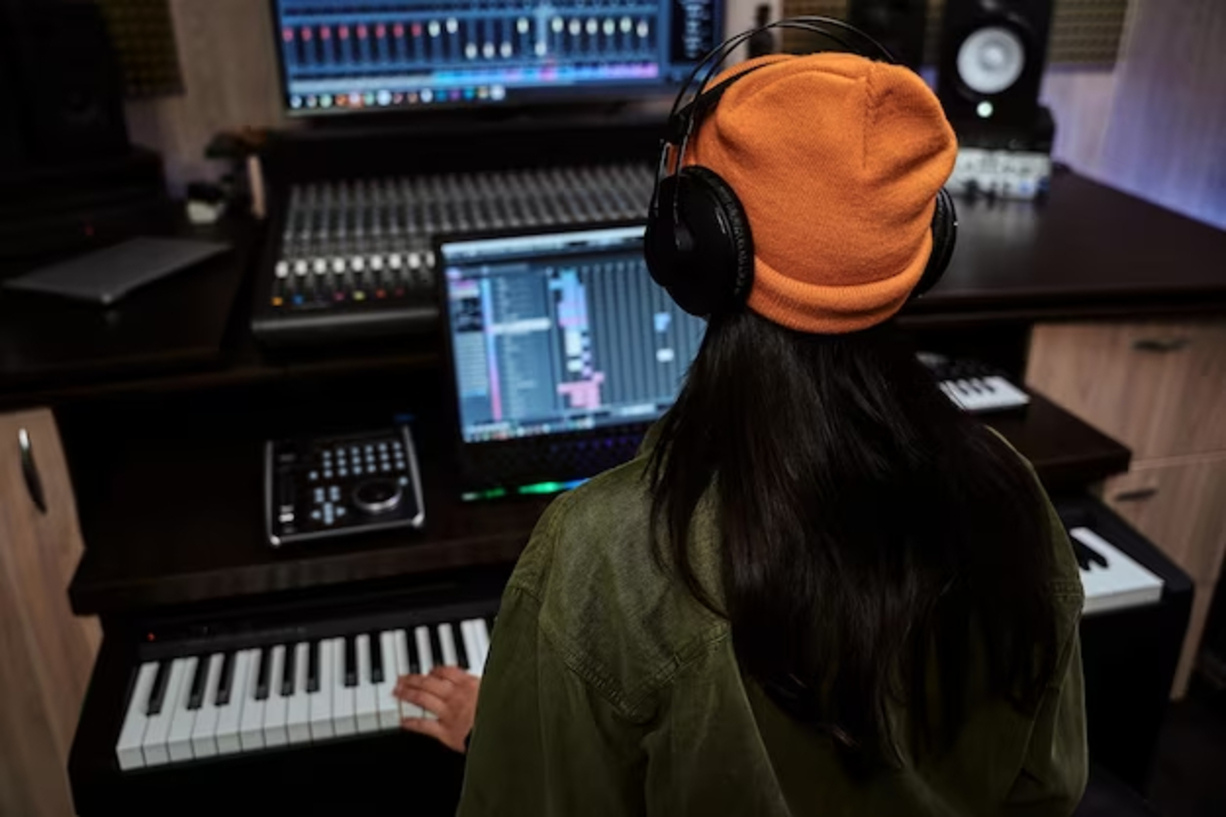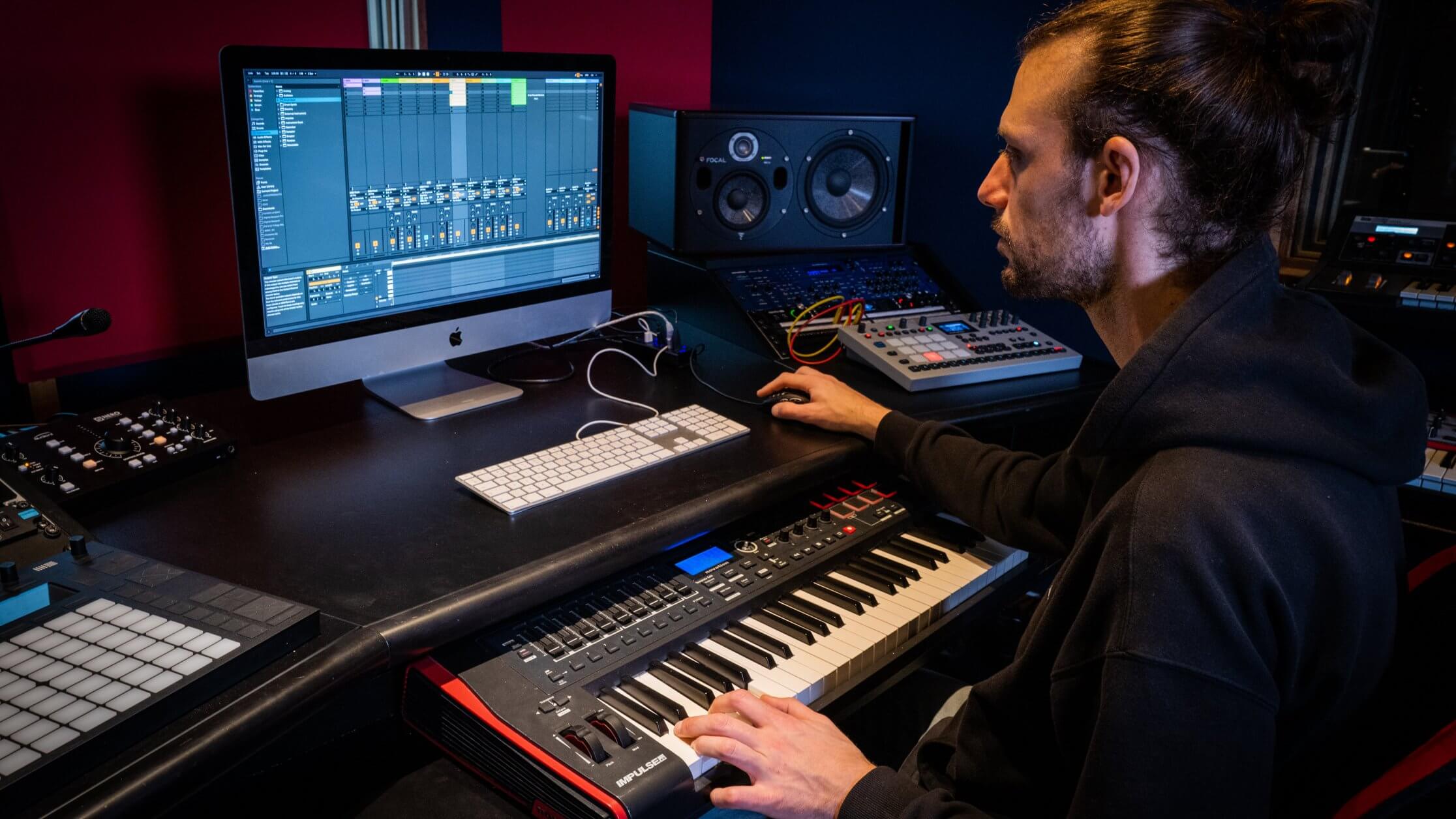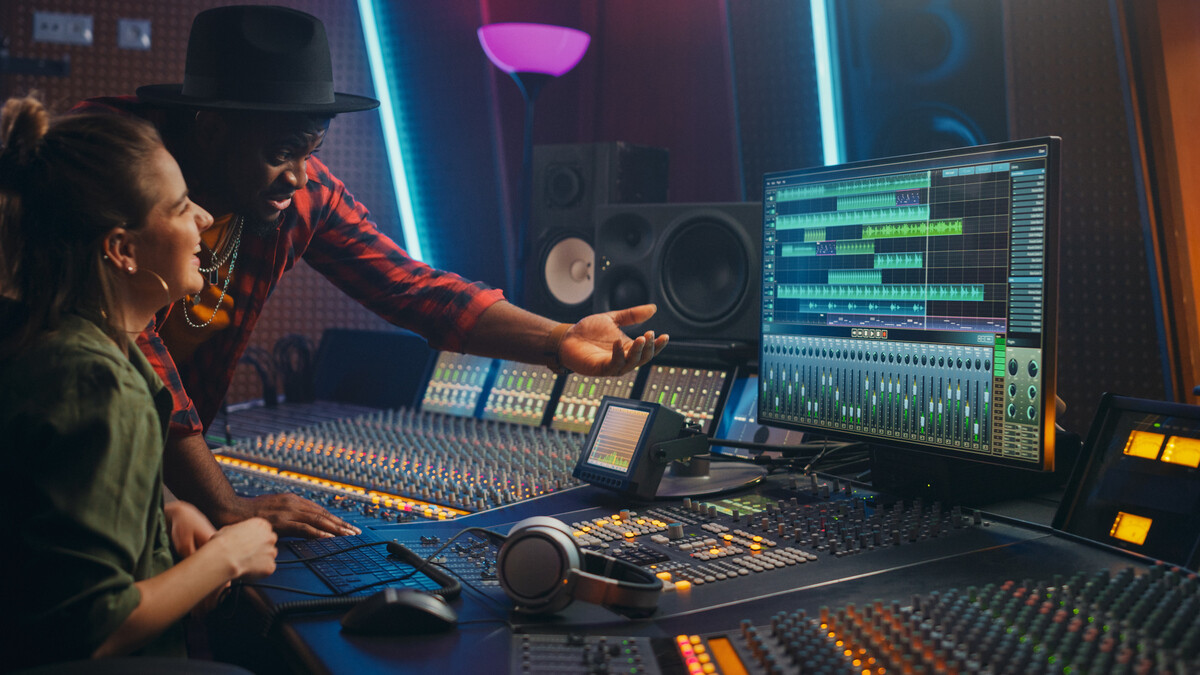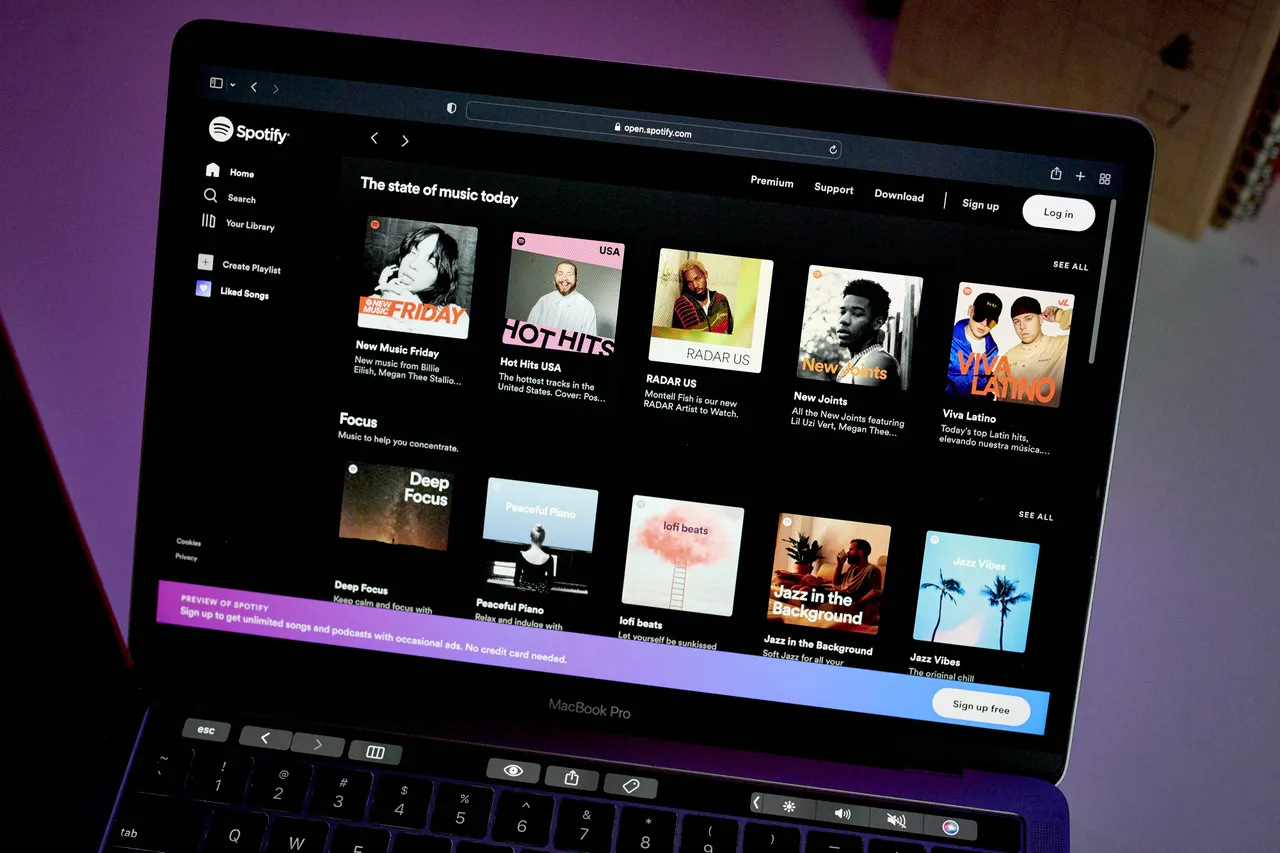Home>Production & Technology>Producer>What Do Music Producers Need


Producer
What Do Music Producers Need
Published: March 6, 2024
Discover essential tools and equipment music producers need to create professional-quality tracks. Find out what it takes to be a successful producer.
(Many of the links in this article redirect to a specific reviewed product. Your purchase of these products through affiliate links helps to generate commission for AudioLover.com, at no extra cost. Learn more)
Table of Contents
Introduction
Music production is a captivating and multifaceted art form that brings together creativity, technical expertise, and business acumen. At its core, a music producer is a visionary who plays a pivotal role in shaping the sounds and direction of a musical piece or album. Whether it's crafting beats, arranging melodies, or overseeing the entire production process, music producers are the architects behind the magic that captivates our senses and emotions.
In the dynamic landscape of the music industry, the role of a music producer extends far beyond just technical know-how. It demands a deep understanding of musical theory, an ear for innovative sounds, and the ability to harness cutting-edge technology to bring musical visions to life. Moreover, successful music producers possess a keen sense of market trends, enabling them to create commercially viable and artistically compelling music.
In this article, we will delve into the essential knowledge, skills, equipment, and networking strategies that music producers need to thrive in the competitive and ever-evolving music industry. From mastering the art of sound engineering to cultivating effective business and marketing skills, we will explore the diverse facets of a music producer's journey.
Join us in unraveling the secrets of this exhilarating profession, and discover the integral components that form the bedrock of a successful music producer's career. Whether you're an aspiring producer seeking to embark on this creative odyssey or a music enthusiast eager to gain insight into the behind-the-scenes magic, this exploration will provide a comprehensive roadmap to the world of music production.
Knowledge and Skills
Music production is a multifaceted discipline that demands a diverse set of knowledge and skills. A successful music producer is not only proficient in the technical aspects of music creation but also possesses a deep understanding of musical theory, composition, and arrangement. Here are the essential knowledge and skills that form the foundation of a music producer's expertise:
Musical Theory and Composition
A comprehensive understanding of musical theory is indispensable for a music producer. This includes knowledge of scales, chords, harmonies, and rhythm. It enables producers to create compositions that resonate with the audience on a profound level. Moreover, proficiency in composition allows producers to craft melodies and harmonies that evoke emotions and convey the intended message of the music.
Sound Design and Engineering
Mastery of sound design and engineering is a cornerstone of music production. Producers must be adept at utilizing various audio effects, synthesizers, and digital audio workstations (DAWs) to sculpt and manipulate sounds. This skill set empowers them to create unique sonic textures and atmospheres, adding depth and character to the music they produce.
Arrangement and Orchestration
The ability to arrange and orchestrate musical elements is pivotal for a music producer. This involves structuring the instrumentation, vocals, and other components of a song in a cohesive and impactful manner. A keen understanding of arrangement allows producers to build tension, create dynamic contrasts, and guide the listener through a compelling musical journey.
Creative Vision and Innovation
Successful music producers possess a visionary outlook and an innate ability to innovate. They are constantly exploring new sonic territories, experimenting with unconventional sounds, and pushing the boundaries of musical expression. This visionary approach enables producers to infuse their productions with fresh, captivating elements that set them apart in the competitive music landscape.
Collaboration and Communication
Effective collaboration is a vital skill for music producers. They often work closely with artists, songwriters, musicians, and audio engineers to bring a musical vision to fruition. Strong communication skills, empathy, and the ability to inspire and guide creative talents are essential for fostering productive and harmonious collaborations.
Adaptability and Technological Proficiency
The music production landscape is constantly evolving, driven by technological advancements and industry trends. Producers must stay abreast of the latest recording techniques, software innovations, and production methodologies. Adaptability and technological proficiency enable producers to harness cutting-edge tools and techniques to realize their creative visions.
In essence, the knowledge and skills required for music production encompass a rich tapestry of musical understanding, technical prowess, creativity, and interpersonal acumen. Mastering these facets empowers music producers to craft compelling, emotionally resonant music that captivates audiences and leaves an indelible impact on the world of music.
Equipment and Software
In the realm of music production, the right equipment and software form the bedrock of a producer's creative arsenal. From capturing pristine audio recordings to sculpting intricate sonic landscapes, the tools at a producer's disposal play a pivotal role in shaping the musical vision into reality.
Studio Essentials
A professional music producer's studio is often equipped with essential hardware, including high-quality microphones, audio interfaces, and studio monitors. These components form the backbone of the recording and monitoring process, ensuring that every nuance of the music is captured and reproduced with utmost fidelity.
Digital Audio Workstations (DAWs)
At the heart of modern music production lies the Digital Audio Workstation (DAW), a software platform that serves as the central hub for recording, editing, and mixing music. Leading DAWs such as Ableton Live, Logic Pro, and Pro Tools provide producers with a versatile toolkit for arranging musical elements, applying effects, and fine-tuning every aspect of a production.
Virtual Instruments and Sample Libraries
In the digital age, producers have access to a vast array of virtual instruments and sample libraries that expand their sonic palette. From realistic emulations of classic synthesizers to meticulously recorded orchestral instruments, these virtual tools empower producers to explore diverse musical genres and textures with unparalleled flexibility.
Audio Effects and Processing Plugins
The sonic sculpting process is enriched by a myriad of audio effects and processing plugins. From reverbs and delays to compressors and equalizers, these plugins allow producers to manipulate and enhance the timbral characteristics of individual tracks, adding depth, dimension, and sonic richness to the music.
Hardware Synthesizers and Controllers
While software instruments offer immense versatility, many producers also incorporate hardware synthesizers and controllers into their setups. These tactile instruments provide a hands-on approach to sound design, enabling producers to interact with and modulate sound in real time, fostering a deeper connection with the music creation process.
Monitoring and Acoustic Treatment
Critical to the production process is the accurate monitoring of audio, facilitated by high-quality studio monitors and headphones. Additionally, acoustic treatment within the studio environment plays a crucial role in ensuring a balanced and accurate representation of sound, allowing producers to make informed decisions during the mixing and mastering stages.
In essence, the equipment and software utilized by music producers are not merely tools, but extensions of their creative vision. By harnessing cutting-edge technology and sonic resources, producers can transcend sonic boundaries, realizing their artistic aspirations with precision and ingenuity.
Networking and Collaboration
Networking and collaboration are indispensable pillars of success for music producers. In the dynamic and interconnected landscape of the music industry, forging meaningful connections and engaging in collaborative endeavors can open doors to new opportunities, amplify creative potential, and elevate the visibility of a producer's work.
Building a Strong Network
Establishing a robust network within the music industry is a strategic endeavor that can yield invaluable benefits. Music producers can cultivate relationships with recording studios, record labels, artists, and fellow producers. Attending industry events, such as music festivals, conferences, and workshops, provides opportunities to connect with like-minded professionals and build a network of allies and collaborators.
Furthermore, leveraging social media platforms and online communities enables producers to expand their reach and engage with a global audience of musicians, industry professionals, and music enthusiasts. By actively participating in online forums, sharing insights, and showcasing their work, producers can amplify their online presence and forge connections that transcend geographical boundaries.
The Power of Collaboration
Collaboration lies at the heart of innovation and artistic growth in music production. Partnering with songwriters, instrumentalists, vocalists, and fellow producers can infuse fresh perspectives and diverse talents into a producer's creative process. Collaborative efforts often lead to the fusion of unique musical styles, the exploration of new sonic territories, and the birth of groundbreaking artistic endeavors.
Furthermore, collaborating with emerging or established artists can serve as a catalyst for expanding a producer's portfolio and reaching new audiences. By co-creating music that resonates with diverse demographics, producers can broaden their impact and establish themselves as versatile and sought-after collaborators.
Nurturing Professional Relationships
Effective networking and collaboration hinge on the cultivation of professional relationships grounded in trust, respect, and mutual benefit. Music producers must approach interactions with integrity, transparency, and a genuine passion for elevating the artistry of their collaborators. By nurturing these relationships, producers can foster a supportive and interconnected community that fosters creativity, innovation, and professional growth.
In essence, networking and collaboration are not merely ancillary pursuits for music producers; they are essential conduits for expanding horizons, fostering creative synergies, and propelling careers to new heights. By embracing the power of networking and collaboration, music producers can navigate the industry landscape with confidence, forge enduring partnerships, and leave an indelible mark on the tapestry of music.
Business and Marketing Skills
In the realm of music production, possessing robust business acumen and effective marketing skills is paramount for navigating the competitive and ever-evolving music industry. While technical prowess and creative vision form the core of a music producer's expertise, the ability to understand market dynamics, negotiate contracts, and promote one's work is equally essential for sustained success.
Understanding Market Trends and Audience Dynamics
A keen understanding of market trends and audience dynamics is pivotal for music producers. By staying attuned to evolving musical preferences, emerging genres, and consumer behavior, producers can align their creative endeavors with market demands. This insight enables them to tailor their productions to resonate with diverse audiences, thereby enhancing the commercial viability and appeal of their work.
Contract Negotiation and Intellectual Property Rights
Navigating the intricacies of contract negotiation and intellectual property rights is a critical aspect of the music production landscape. Music producers must be adept at drafting and negotiating contracts that safeguard their creative contributions and ensure fair compensation. Additionally, a comprehensive understanding of intellectual property laws and rights management empowers producers to protect their work and navigate licensing agreements with clarity and confidence.
Branding and Promotional Strategies
Effective branding and promotional strategies are instrumental in amplifying the visibility and impact of a music producer's portfolio. Cultivating a distinct brand identity that reflects the producer's artistic ethos and values fosters a compelling narrative that resonates with audiences and industry stakeholders. Moreover, leveraging digital marketing channels, social media platforms, and strategic partnerships enables producers to amplify their reach and engage with a global audience of music enthusiasts and industry professionals.
Entrepreneurial Mindset and Revenue Diversification
Embracing an entrepreneurial mindset is pivotal for music producers seeking to thrive in a dynamic industry landscape. Diversifying revenue streams through avenues such as music licensing, production workshops, and merchandise sales empowers producers to build sustainable and resilient careers. Moreover, cultivating a strategic approach to monetizing their creative output and leveraging emerging revenue models ensures producers can navigate industry shifts and capitalize on new opportunities.
In essence, business and marketing skills are not ancillary pursuits for music producers; they are integral components that underpin the sustainability and growth of their careers. By honing these skills, music producers can navigate the intricacies of the industry with acumen, fortify their professional standing, and forge enduring pathways to success.
Conclusion
In conclusion, the journey of a music producer is a captivating odyssey that intertwines technical expertise, creative vision, and entrepreneurial acumen. From the foundational knowledge of musical theory and sound engineering to the strategic deployment of business and marketing skills, music producers navigate a multifaceted landscape that demands versatility, innovation, and unwavering dedication.
The role of a music producer extends far beyond the confines of a studio; it embodies the fusion of artistry and industry acumen, where the alchemy of sound meets the dynamics of market trends and audience engagement. By mastering the intricacies of musical composition, sound design, and arrangement, producers breathe life into sonic tapestries that resonate with audiences on a profound level.
Furthermore, the symbiotic relationship between cutting-edge equipment, innovative software, and the producer's creative ingenuity forms the crucible where musical visions are forged into tangible expressions. The studio becomes a canvas, and the producer, an artist wielding a palette of sonic colors to craft emotive landscapes that captivate and inspire.
Networking and collaboration emerge as the conduits through which producers expand their horizons, amplify their creative potential, and forge enduring partnerships that transcend geographical boundaries. By nurturing professional relationships and engaging in collaborative endeavors, producers cultivate a vibrant ecosystem of creativity, innovation, and mutual support.
The convergence of business acumen and marketing savvy empowers music producers to navigate the industry landscape with resilience and foresight. Understanding market dynamics, negotiating contracts, and deploying effective branding and promotional strategies are pivotal for amplifying the visibility and impact of a producer's work, ensuring that their creative endeavors resonate with diverse audiences.
In essence, the world of music production is a harmonious symphony of technical prowess, artistic innovation, and entrepreneurial spirit. As the curtain falls on this exploration, it becomes evident that the role of a music producer transcends the confines of a profession; it embodies a profound passion for shaping sonic narratives that transcend time, leaving an indelible imprint on the hearts and minds of listeners worldwide.











